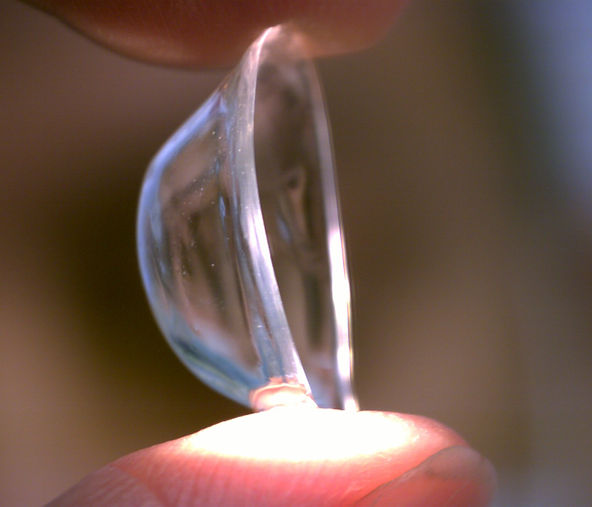Because they take more technology, resources, and time with the Doctor!
Regular contact lenses are soft contact lenses that correct your prescription. More or less they use a “one-size-fits-all” sizing and can correct astigmatism, nearsightedness, farsightedness, and reading glasses. These work for most people.
However, when people have extremely dry eyes, high prescriptions, corneal diseases, double vision, and other ocular issues, the vision can be drastically improved with specialty contact lenses. They may not see well or are unable to wear regular soft contact lenses.
Specialty contact lenses are: scleral lenses, custom soft contact lenses, rigid gas permeable “hard” lenses, prosthetic lenses, and double vision (prism) contact lenses.
These lenses cost more because to fit them correctly they require:
-
Highly expensive technology.
-
This machinery maps the cornea, the scleral, and scans through the eye to troubleshoot small areas of the lenses.
-
-
Years of training.
-
Contact lens specialists have invested years of their lives into education; taking classes, reading research, and completing programs in order to provide the highest level of lens design for their patients.
-
Outside of my practice I also lecture, consult, write, and travel to practices in order to teach other Doctors how to fit specialty lenses.
-
-
Advanced lens manufacturing
-
Specialty contact lenses require entire teams of people to work with the Doctor to design and produce a quality lens. Usually lenses are ordered with a “warranty” that allows for free remakes of the lenses until a final end result is reached.
-
-
Time.
-
While a simple soft contact lens can take me five to ten minutes to fit and assess on the eye, specialty contact lenses take hours of time with the patient, imaging and troubleshooting small issues, and hours after the patient leaves to design the lens myself, discuss changes with the manufacturer, and order lenses.
-
-
High Quality Material.
-
Most specialty contact lenses are made from material that is more durable. This allows for lenses to last years without having to replace them.
-
The best part of my time in practice is seeing patients achieve incredible results with these specialty contact lenses. It makes all this time more than worth it!


